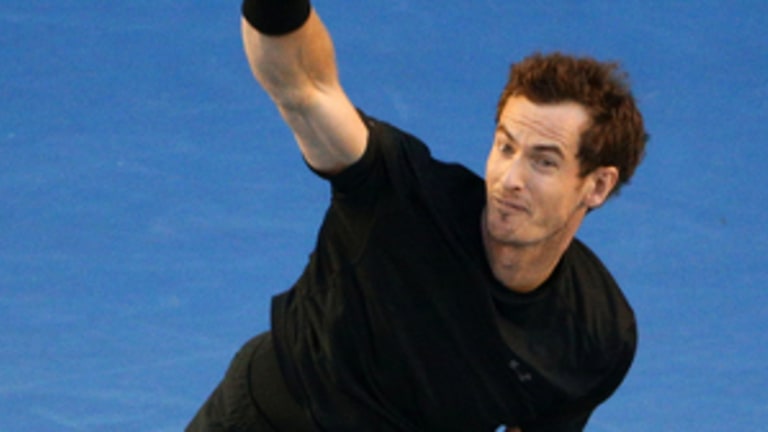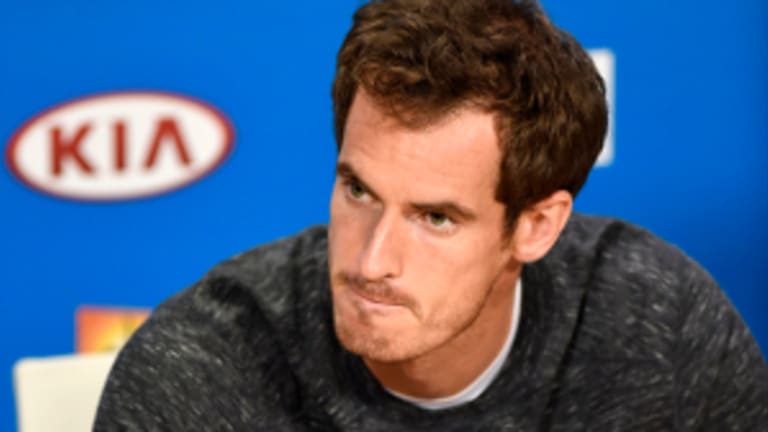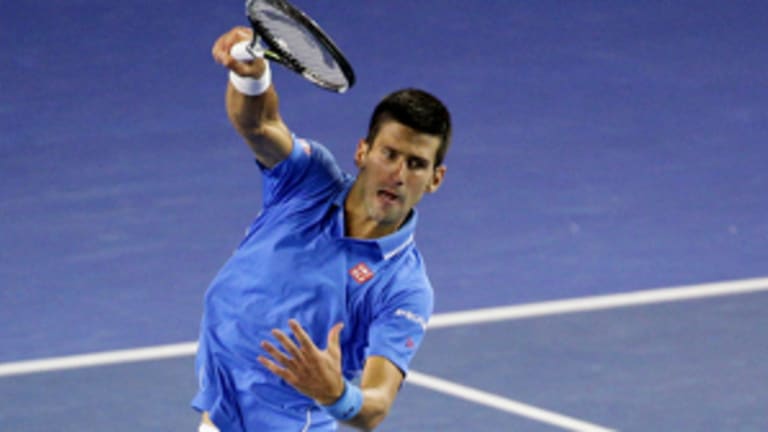“We’ve known each other since [we were] 11, 12. There is only one week difference between us. Very similar game and very similar role to professional tennis.”
Novak Djokovic said yesterday that these were the reasons his relationship with Andy Murray is “very special.” To me, these are also the reasons that their rivalry, despite the fact that this will be the fifth time they’ve faced each other in a Grand Slam final, has only rarely caught fire in the three-out-of-five-set format used at the majors.
Their games, as Djokovic notes, are similar. Each is a defender, runner, and counter-puncher at heart. Which means there’s little to no contrast in their styles; points are often won by attrition, when one of them finally, after much exertion, misfires. This isn’t true when Djokovic or Murray play Roger Federer or Rafael Nadal. Federer’s one-handed backhand and willingness to rush the net, and the fact that Nadal is left-handed and hits with more topspin, are enough to inject a sense of stylistic variety, of cause-and-effect, into the proceedings.
More of an issue, though, are the other two elements that Djokovic notes: He and Murray were born within a week of each other in May 1987; and they have “very similar roles” in the men’s game today. In a sense, they’re too similar. Unlike Federer’s rivalries with the other, younger members of the Big 4, there’s no Oedipal—or Fedipal—dynamic, no champion vs. challenger aspect, no sense that the rise of one man will mean the decline of the other. At 27, these tennis twins who will go on being brothers, and top players, for the foreseeable future.
Part of the reason for that lack of spark is that Djokovic, while he has lost two Grand Slam finals and a bitter semifinal to Murray at the 2012 Olympics, has remained comfortably ahead of him in the rankings and in their head-to-head. The Serb leads the Scot 15-8, a margin that was much closer until 2014, when Djokovic ran off four straight wins over Murray and dropped just one set while he was at it. The Serb has also won seven of their last eight meetings.


